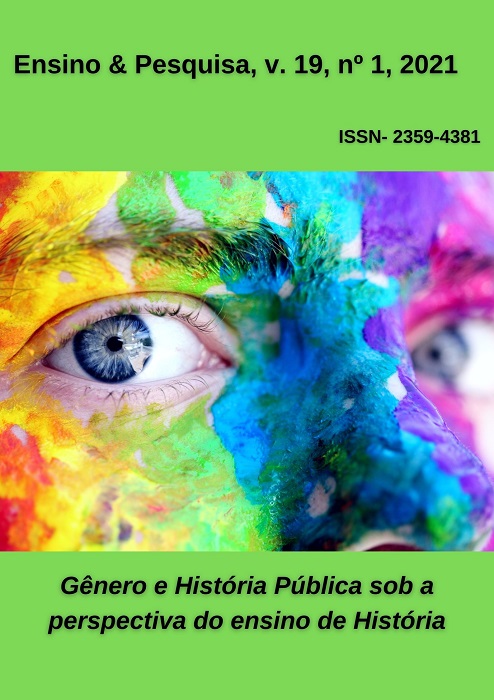Falácias, pós-verdade e ensino-aprendizagem de Ciências
DOI:
https://doi.org/10.33871/23594381.2021.19.1.3932Palabras clave:
pós-verdade, construtivismo social, pós-modernismo, desconstrucionismoResumen
Inicialmente este texto traça um breve panorama da dinâmica e efeitos perniciosos da atual proliferação de fake news e teorias pseudocientíficas baseadas em falácias e outros tipos de estratagemas retóricos que, sistematicamente, vem disseminando ódio e preconceito à minorias e instigando atitudes negacionistas em relação à ciência, à razão e à democracia. Em seguida, discorre sinteticamente sobre a irônica apropriação discursiva de algumas teses relativistas por pseudointelectuais conservadores. Também discute o grau de penetração dessas mesmas teses na área de ensino de ciências e as possíveis implicações educacionais de uma eventual adesão generalizada a tais pressupostos. Por fim, apresenta algumas observações metodológicas direcionadas aos que se dedicam à pesquisas na área de ensino e uma sugestão didática para tentar mitigar alguns problemas de alfabetização científica de estudantes, ocasionados pela insuficiência de práticas de análise crítica de textos acadêmicos ou de divulgação científica nas atividades escolares.Descargas
Citas
ALMOSSAWI, A. O livro ilustrado dos maus argumentos. Sextante, 2017. Disponível em: https://bookofbadarguments.com/pt-br. Acesso em: 27 mai. 2020.
ASSIS, E. A; SILVA, F. W. O. Uma estratégia de ensino inspirada na Dialética Socrática e na Erística. Educação em Foco, v. 14, n. 18, p. 149-167, 2012.
BAILIN, S. Critical thinking and science education. Science & Education, v. 11, p. 361-375, 2002.
BLOOR, D. Conhecimento e imaginário social. 2a ed. Trad. Marcelo Amaral Penna-Forte. São Paulo: Editora UNESP. 2009
BLOOR, D. Anti-Latour. Studies in History and Philosophy of Science, v.30, n.1, p.81-112, 1999.
BOYD, R. N. On the current status of the issue of scientific realism. In: HEMPEL, C; PUTTMAN, H; ESSLER, W. (Eds.). Methodology, Epistemology, and Philosophy of Science. Dordrecht: Springer, 1983. p. 45-90.
BUNGE, M. A critical examination of the new sociology of science part 1. Philosophy of the Social Sciences, v. 21, n. 4, p. 524-560, 1991.
CHIBENI, S. S. A inferência abdutiva e o realismo científico. Cadernos de História e Filosofia da Ciência, v. 6, n. 1, p. 45-73, 1996.
CLANDININ, D. J.; CONNELLY, F. M. Narrative Inquiry In: GREEN, Judith L., CAMILLI, Gregory, ELMORE, Patricia B. Handbook Of Complementary Methods In Education Research. Washington: American Educational Association, 2006. p. 477-487.
COLLINS, H.M; PINCH, T. The Golem: What Everyone Should Know About Science, Cambridge: Cambridge University Press, 1992.
DIAS, V. M. Investigação do Cibercrime. Data Venia, n. 1, p. 63-88, 2012.
FALTAY, P. Conspiração e engajamento no YouTube: o modelo de negócios paranoide das plataformas. Anais do VI Simpósio Internacional LAVITS, Salvador, 26 a 28 jun. 2019.
FREUND, A. Oral history as process-generated data. Historical Social Research, n. 10, p. 22-48, 2009.
GROSS, P. R; LEVITT, N. Higher superstition: The academic left and its quarrels with Science. Baltimore: Johns Hopkins University Press, 1994.
HIGINO, A. F. F; SILVA, F. W. O. Esquemas de argumentação em física de estudantes dos períodos iniciais de engenharia. 21º Simpósio Nacional de Ensino de física. Uberlândia, 2015. Atas... São Paulo: SBF, 2016.
JUNGWIRTH, E. Avoidance of logical fallacies: A neglected aspect of science"education and science"teacher education. Research in Science & Technological Education, v. 5, n. 1, p. 43-58, 1987.
KAKUTANI, M. A morte da verdade: notas sobre a mentira na era Trump. Rio de Janeiro: Editora Intrínseca, 2018.
KUHN, T. S. The structure of scientific revolutions. Chicago: University of Chicago Press, 1962.
LATOUR, B. Why Has Critique Run out of Steam? From Matters of Fact to Matters of Concern. Critical Inquiry, v. 30, n. 2, p. 225-248, 2004.
LATOUR, B; WOOLGAR, S. Laboratory Life: The Construction of Scientific Facts. 2nd ed. Princeton: Princeton University Press, 1986.
LAUDAN, L. Science & Relativism. Chicago: Chicago University Press, 1990.
LEHMAN, D. Signs of the Times: Deconstruction and the Fall of Paul de Man. New York: Simon & Schuster, 1991.
MATTHEWS, M.R. Philosophical and Pedagogical Problems with Constructivism in Science Education. Tréma, n. 38, p. 41-56, 2012.
MATTHEWS, M. R. In defense of modest goals when teaching about the nature of Science. Journal of Research in Science Teaching, v. 35, n. 2, p. 161-174, 1998.
MCINTYRE, L. Post-Truth. Cambridge: MIT Press, 2018
NORRIS, S. P; PHILLIPS, L. M. How literacy in its fundamental sense is central to scientific literacy. Science Education, v. 87, n. 2, p. 224-240, 2003.
PHILLIPS, D. C. The good, the bad, and the ugly: The many faces of constructivism. Educational Researcher, v. 24, n. 7, p. 5-12, 1995.
SCHOPENHAUER, A. 38 estratégias para vencer qualquer debate: A arte de ter razão. Girassol Brasil, 2014.
SLEZAK, P. Appraising Constructivism in Science Education. In: MATTHEWS, M. R. (Ed.). International Handbook of Research in History, Philosophy and Science Teaching. Springer, Dordrecht, 2014. p. 1023-1055.
SOKAL, A; BRICMONT, J. Impostures intellectuelles. Paris: Odile Jacob, 1997.
WOOLGAR, S. Science: The very idea. London: Tavistock Publications, 1988.
ZAMMITO, J. H. A nice derangement of epistemes: Post-positivism in the study of science from Quine to Latour. Chicago: University of Chicago Press, 2004.
ZEIDLER, D. L. The central role of fallacious thinking in science education. Science Education, v. 81, n. 4, p. 483-496, 1997.

